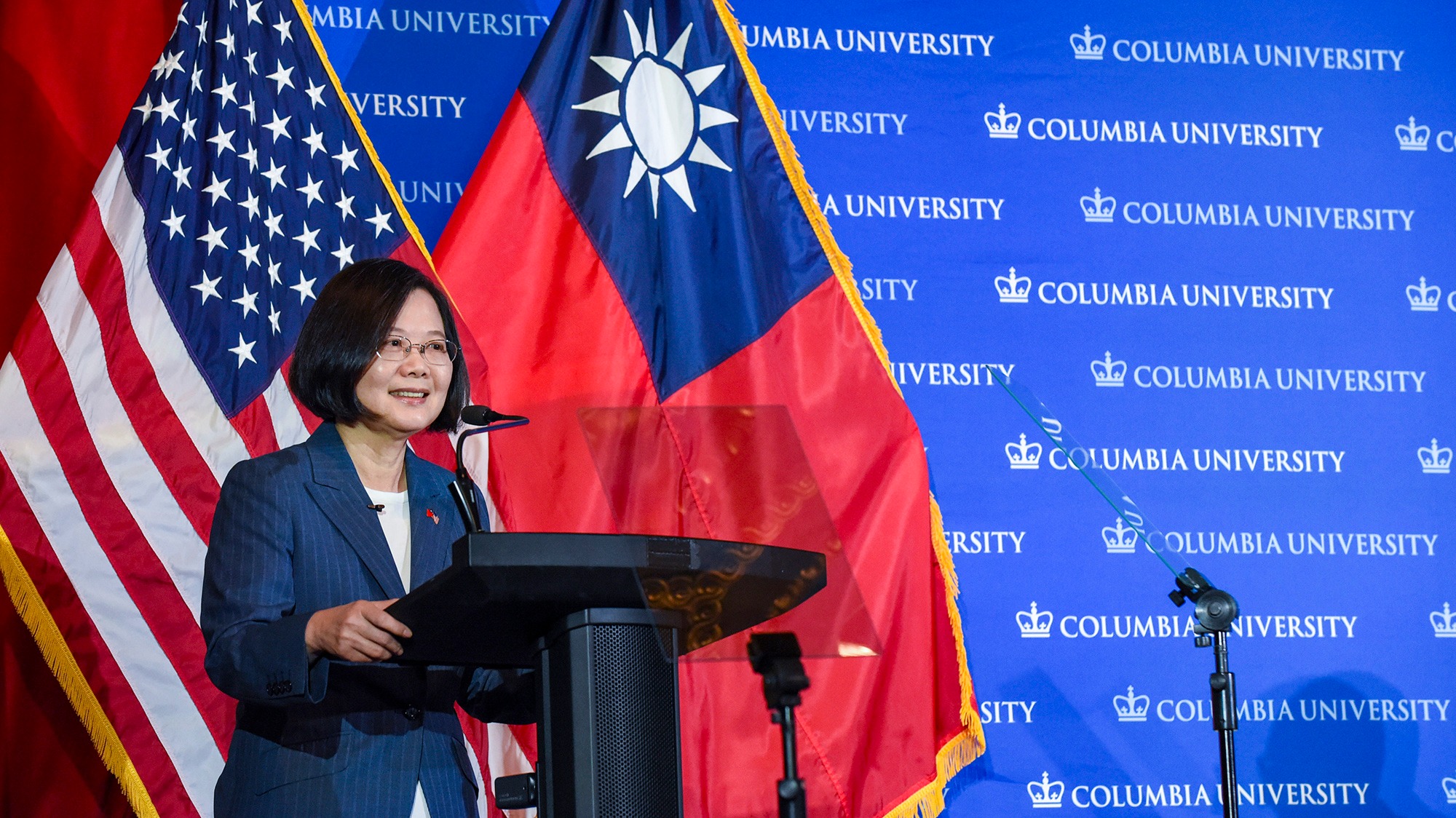Taiwan’s President Tsai Ing-wen has commended the US Congress for passing a comprehensive foreign aid package, including arms support for Taiwan, despite objections from China.
After a prolonged period of debate and delays, President Joe Biden signed the bill into law on Wednesday. While touted as $95 billion in aid for Ukraine, Israel, and Taiwan, the legislation encompasses broader provisions affecting various parts of the Asia-Pacific region, as well as domestic spending in the US.

President Tsai Ing-wen (Credits: NPR)
House Republicans emphasized the $8.1 billion allocated for the Indo-Pacific as a measure to counter China’s influence and bolster deterrence in the region. However, the largest portion of the funding is directed towards projects within the US itself.
Despite delays in shipbuilding projects, $3.3 billion from the bill will support the domestic submarine-building industry in the US. This includes funding for the Columbia-class and Virginia-class submarines, with a substantial portion benefiting American suppliers across all states.
The submarine funding is tied to the Aukus deal between the US, UK, and Australia, ensuring that the US can produce Virginia-class nuclear-powered submarines for Australia without compromising its own defense needs.
Additionally, $2 billion from the aid package will support the foreign military financing program for Taiwan and other security partners in the Indo-Pacific, aimed at addressing Chinese aggression.

Tsai Ing-wen (Credits: Columbia News – Columbia University)
China criticized the aid package, accusing the US of pushing Taiwan into a “dangerous situation” and violating its commitments. Beijing has repeatedly demanded an end to arms sales to Taiwan, which it considers its own territory.
Despite China’s objections, Taiwan has signed contracts with the US for advanced military equipment, reinforcing its defense capabilities with the support of its most crucial international ally, the United States.


























